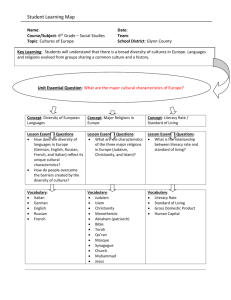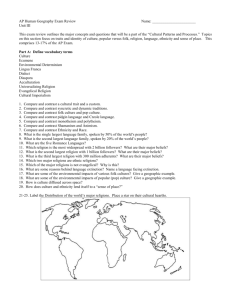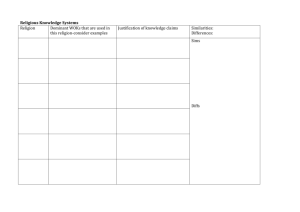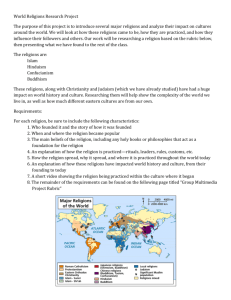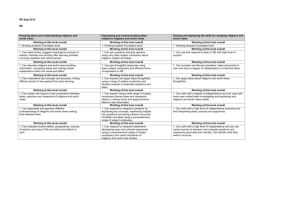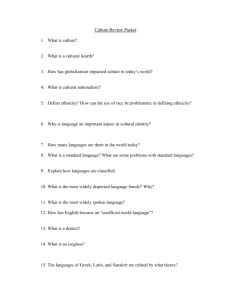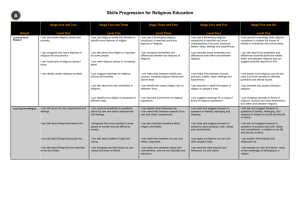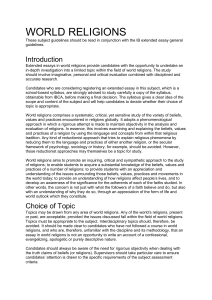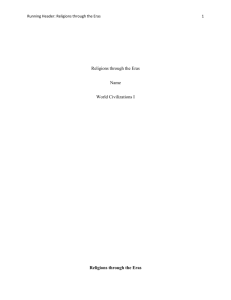Why Study World Religions
advertisement
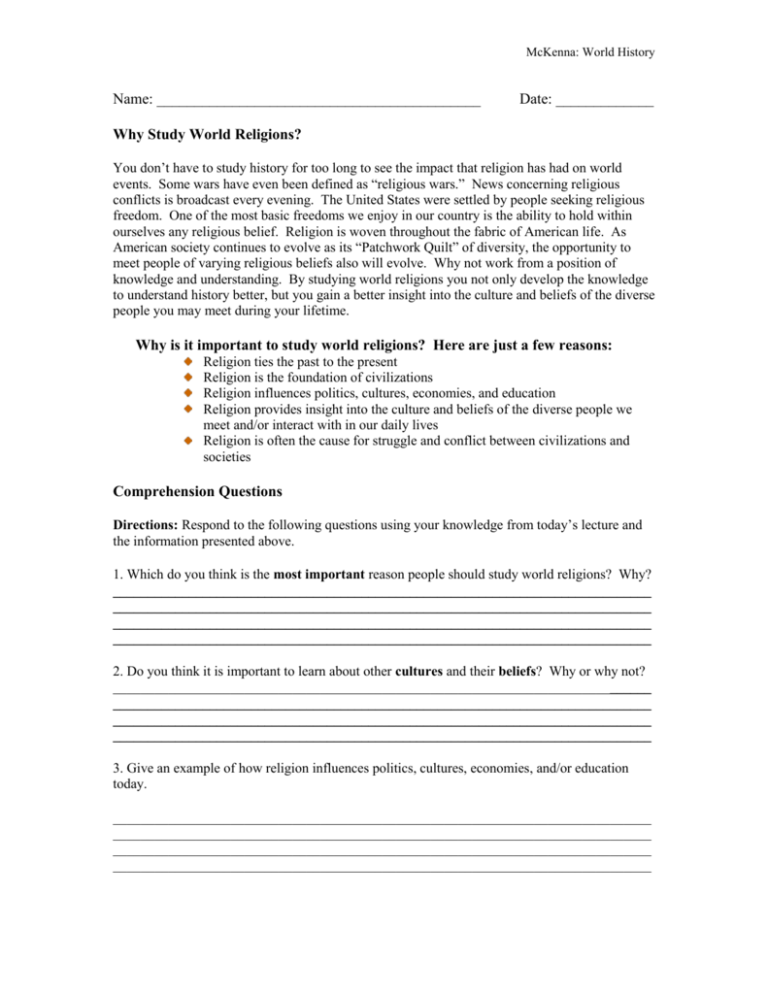
McKenna: World History Name: ___________________________________________ Date: _____________ Why Study World Religions? You don’t have to study history for too long to see the impact that religion has had on world events. Some wars have even been defined as “religious wars.” News concerning religious conflicts is broadcast every evening. The United States were settled by people seeking religious freedom. One of the most basic freedoms we enjoy in our country is the ability to hold within ourselves any religious belief. Religion is woven throughout the fabric of American life. As American society continues to evolve as its “Patchwork Quilt” of diversity, the opportunity to meet people of varying religious beliefs also will evolve. Why not work from a position of knowledge and understanding. By studying world religions you not only develop the knowledge to understand history better, but you gain a better insight into the culture and beliefs of the diverse people you may meet during your lifetime. Why is it important to study world religions? Here are just a few reasons: Religion ties the past to the present Religion is the foundation of civilizations Religion influences politics, cultures, economies, and education Religion provides insight into the culture and beliefs of the diverse people we meet and/or interact with in our daily lives Religion is often the cause for struggle and conflict between civilizations and societies Comprehension Questions Directions: Respond to the following questions using your knowledge from today’s lecture and the information presented above. 1. Which do you think is the most important reason people should study world religions? Why? ______________________________________________________________________________ ______________________________________________________________________________ ______________________________________________________________________________ ______________________________________________________________________________ 2. Do you think it is important to learn about other cultures and their beliefs? Why or why not? ______________________________________________________________________________ ______________________________________________________________________________ ______________________________________________________________________________ ______________________________________________________________________________ 3. Give an example of how religion influences politics, cultures, economies, and/or education today. ______________________________________________________________________________ ______________________________________________________________________________ ______________________________________________________________________________ ______________________________________________________________________________ McKenna: World History Historical Comprehension It's impossible to wander through any of the major art museums in the world and fail to recognize that the sculptures, paintings, figurines, pottery, and statues beg an understanding of world religions. The stories, beliefs, hopes, dreams, fears, and deepest convictions of peoples throughout history have been captured visually in art and intellectually in sacred texts. These faith traditions have shaped human history in multiple ways - political, military, social, cultural, and intellectual. Interdisciplinary Understanding Studying world religions enables the student to integrate the accumulated knowledge of the centuries into a holistic understanding of human societies. Sociology, literature, history, political science, anthropology, and art all draw on religious contexts to give a fuller dimension to their own disciplines. Global Preparedness In generations past, foreign cultures and religions were rarely encountered. They remained two-dimensional descriptions in textbooks. Today we may sit in class next to a Muslim, work with a Baha'i, and travel through India; the woman in line next to you at the grocery store may be a Buddhist or a Wiccan. In a world where technology has made multicultural and inter-religious contact commonplace, we all need to be prepared to live as neighbors with those of different faiths. Integrated markets and cultures demand the sensitivity and mutual respect that comes with understanding of belief systems. Social Vision Students of world religions are prepared to work side-by-side with people of different faith traditions in the larger efforts shared by all faiths. Every religion instructs its faithful in ethics of compassion, personal integrity, and social responsibility. Finding common ground and working together toward the needs of the community is made possible through a fuller vision of world religions.
